Hey there,
Ever feel a bit lost in the maze of UK government and law? One of the most fundamental pieces of the puzzle is understanding "the Crown". It's a term you hear a lot, but what does it actually mean, and what powers does it hold? Getting to grips with this is key to understanding how the UK is run.
Today, we give you the inside track on the powers of the Crown, acting as the extended show notes for our latest podcast episode.
Sharpen your political punditry skills by never missing extended shownotes from The Bench Report. You'll be a guest on ‘Newsnight’ in no time.
Unlocking the secrets of the Crown’s power
Let's face it, the idea of the "Crown" can seem a bit old-fashioned. But it's actually a really important part of how the UK works. Professor Robert Blackburn sums it up well: it's "fundamental to the law and working of government in the UK". Think of it as the central source of governmental authority. Walter Bagehot even made a distinction between the "dignified" bits (like the monarchy) and the "efficient" bits (the actual working government).
At its core, the King plays two roles: Head of State (handling the formal constitutional stuff) and Head of Nation (being the symbolic figurehead). But the real power breakdown looks like this:
The Royal Prerogative: This is like the leftover power of the Sovereign, but nowadays it's mostly used on the say-so of the Prime Minister and government ministers. These powers don't need a thumbs-up from Parliament, although laws can add to them. It's those "residual powers, rights, immunities and privileges of the Sovereign and of the Crown" that set it apart from what regular folks can do.
Who uses these powers? Sometimes the King acts alone (like picking the PM or giving out certain honours). Other times, it's the King acting on the advice of ministers (like when Parliament gets prorogued or for some public appointments). Ministers themselves also use prerogative powers, especially for things like treaties. And then there's the "King in Council" – a Privy Council meeting with the King – used for things like Prerogative Orders in Council.
Prerogative Paperwork: Most of the time, using a prerogative power means creating a formal document. These include Prerogative Orders in Council (for appointments and changes to certain organisations), Royal Sign Manual documents (with the Monarch's signature), Writs (like calling people to Parliament or calling an election) , Letters Patent under the Great Seal (usually for public appointments – did you know the Crown Office deals with these and they have a wax wafer seal attached? ) , Royal Charters , and Prerogative Royal Proclamations (which become official as soon as they're sealed ) .
Are there limits? Absolutely! The Crown can't just invent new prerogative powers . If a law passed by Parliament clashes with a prerogative power, the law wins . However, if a law scraps a prerogative power, a new law can bring it back . Interestingly, the courts have said the government has some basic administrative powers ("Third Source" powers) that aren't part of the royal prerogative and don't need specific laws . The courts can also check if a prerogative power actually exists, if it's being used correctly, and if it's within legal bounds . But there are some things the courts won't touch, like treaties, defence, honours, dissolving Parliament, and appointing ministers . On top of all this, many prerogative actions follow "constitutional conventions" – unwritten rules that everyone treats as binding, like the Monarch usually acting on ministers' advice .
Prerogative in Practice: Think about the dissolution of Parliament (done by the Crown on the PM's say-so ), Royal Assent (the King's final stamp on laws), signing treaties (done by ministers or representatives with the Monarch's permission ), many public appointments (though ministers often have delegated power), handing out honours (in the King's name, mostly on government advice), the "Prerogative of Mercy" (the King, on advice, can step in with criminal cases ), and even appointing King's Counsel (KCs) .
Statutory Powers: Parliament also passes laws that give specific powers to the Crown . For example, "the King in Parliament" makes primary legislation . Also, the "King in Council" gets powers through laws, like dealing with boundary changes for elections or granting borough status . Loads of laws also put limits on what the Crown can do . Remember the Bill of Rights? It said the King couldn't just ignore laws without Parliament's okay . Even things like Statutory Instruments (those smaller bits of law) can give powers to the Crown . And there are specific rules, like the Crown Estate needing the Treasury's go-ahead to sell off seabed .
The Crown and the Different Parts of Government:
Parliament: Parliament exists because of the royal prerogative! The King or Crown 'in Parliament'" (that's the Monarch, Lords, and Commons) makes laws on UK-wide issues . Parliament is the top dog legally speaking, although the laws that set up the devolved governments acknowledge this. The Monarch kicks off each Parliament and has to give Royal Assent to every law. The Crown has its own way of talking to Parliament, using phrases like "King's pleasure". Interestingly, you can't bring the Sovereign's name directly into parliamentary debates in a critical way .
The Executive (Government): Most of those prerogative powers? Used on the advice of the PM and ministers. The King and PM have regular private chats. But it's the ministers who are answerable to Parliament and who ultimately decide on policy, even if the Monarch offers a different view . The Sovereign appoints the Prime Minister. Even Scottish Ministers are seen as acting "on behalf of [His] Majesty".
The Judiciary (Courts): The King is the Head of the Judiciary. Judges pledge their loyalty to the Crown . King's Counsel are appointed by the King . The Crown Office helps with appointing judges . Even police officers are seen as "servants of the Crown" in England and Wales . However, the Monarch can't be personally sued , but you can take legal action against the Crown when it's acting as the government .
What Keeps the Crown in Check? Several things: the laws passed by Parliament , the common law (those legal principles developed over time), those unwritten constitutional conventions (especially the one about acting on ministerial advice ), and the big principle of parliamentary sovereignty, meaning Parliament can make any law it wants and it trumps prerogative powers .
Ultimately, the Crown's powers are a mix of old traditions and laws, used in different ways (mostly with ministerial input), and they're kept in check by a variety of legal and traditional limits. It's a symbolic yet legally significant part of the UK's constitution.
Don’t forget to head to the podcast website to listen to this episode on the platform of your choice. Follow to receive new episodes as soon as they are released.
Glossary of Key Terms
Royal Prerogative: The historic powers and privileges belonging to the Sovereign.
Statute Law: Laws passed by Parliament.
Constitutional Conventions: Unwritten rules of political practice considered binding.
Parliamentary Sovereignty: The principle that Parliament is the supreme law-making body.
Royal Assent: The Monarch's formal approval needed for a bill to become law.
Minister of the Crown: A legally defined role within the government.
King in Council: The King acting on the advice of the Privy Council.
Letters Patent: Formal legal documents issued by the Crown under the Great Seal.
Writs: Formal written commands issued in the name of the Crown.
Parliamentary Sources
The United Kingdom constitution – a mapping exercise
Research Briefing
Published 23 April, 2025
Questions and Answers
Is the King all-powerful? Absolutely not. The King operates within a framework of laws, conventions, and the overarching authority of Parliament.
Who really makes the decisions then? For most Crown powers, it's the government (Prime Minister and ministers) who advise the King and effectively direct their use. They are accountable to Parliament .
Can the Crown create new powers? No, new prerogative powers can't be created . Any new powers would typically need to be granted by an Act of Parliament .
What happens if a law clashes with a Crown power? The law passed by Parliament takes precedence .
Why is the Crown still important then? It provides a continuity of the state, plays a symbolic role as Head of Nation, and carries out essential constitutional functions like Royal Assent and appointing the Prime Minister.
Politics is everyone’s business. Know someone who will benefit from knowing more about this issue? Please share The Bench Report with them.
What you can do.
When you hear about government actions, remember that many of them are technically exercises of the Crown's power, acting on the government's advice.
Understanding the difference between prerogative and statutory powers helps clarify the source of governmental authority.
Keep an eye on parliamentary debates and new legislation, as these can impact the scope and exercise of Crown powers.
Join the campaign!
Find us on socials: X / Bluesky / Facebook / Instagram
Shape our next episode! Get in touch with an issue important to you - I’ll grab another coffee and start the research.
Email: thebenchreportuk@gmail.com
Subscribe for free to stay connected, never miss extended shownotes and astound your friends at dinner parties.


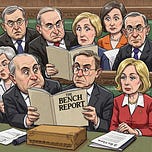

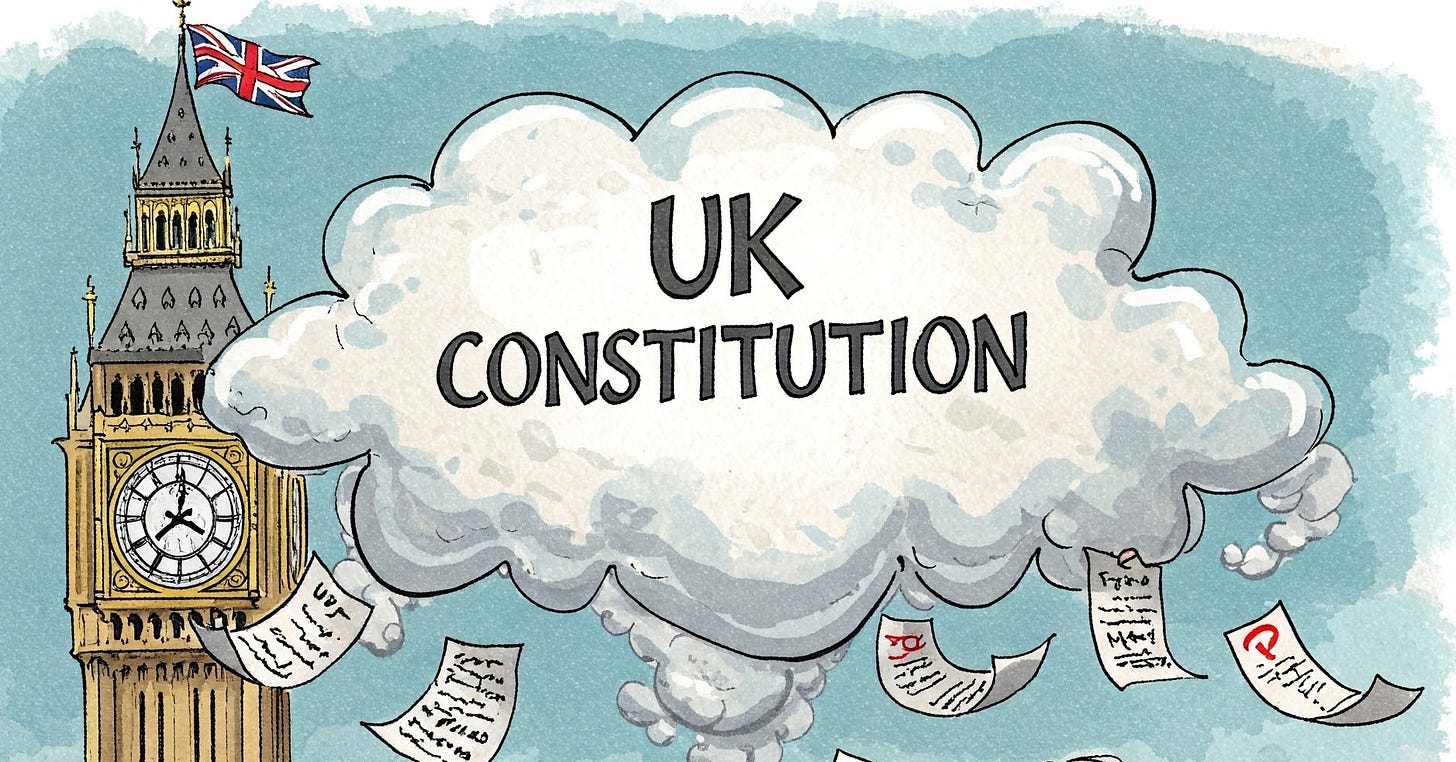
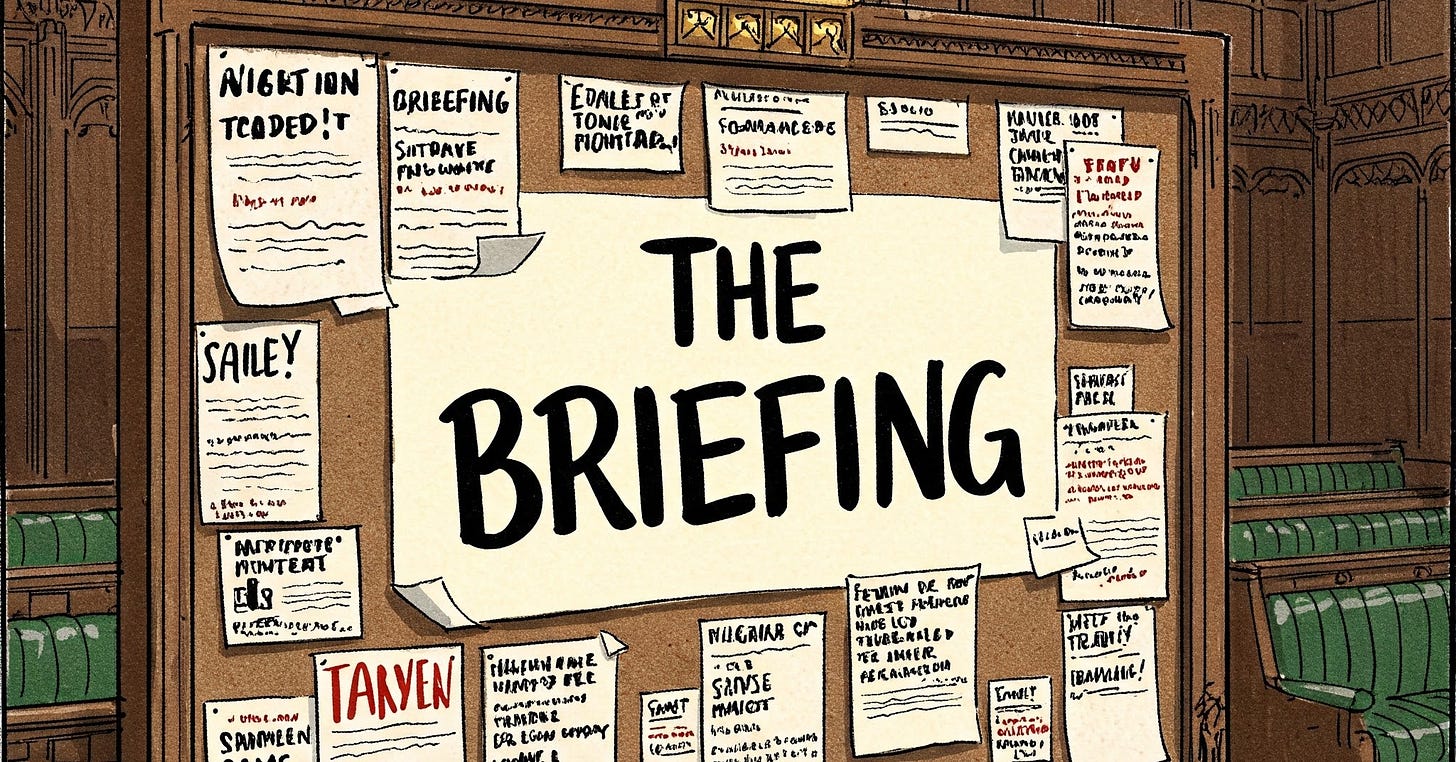
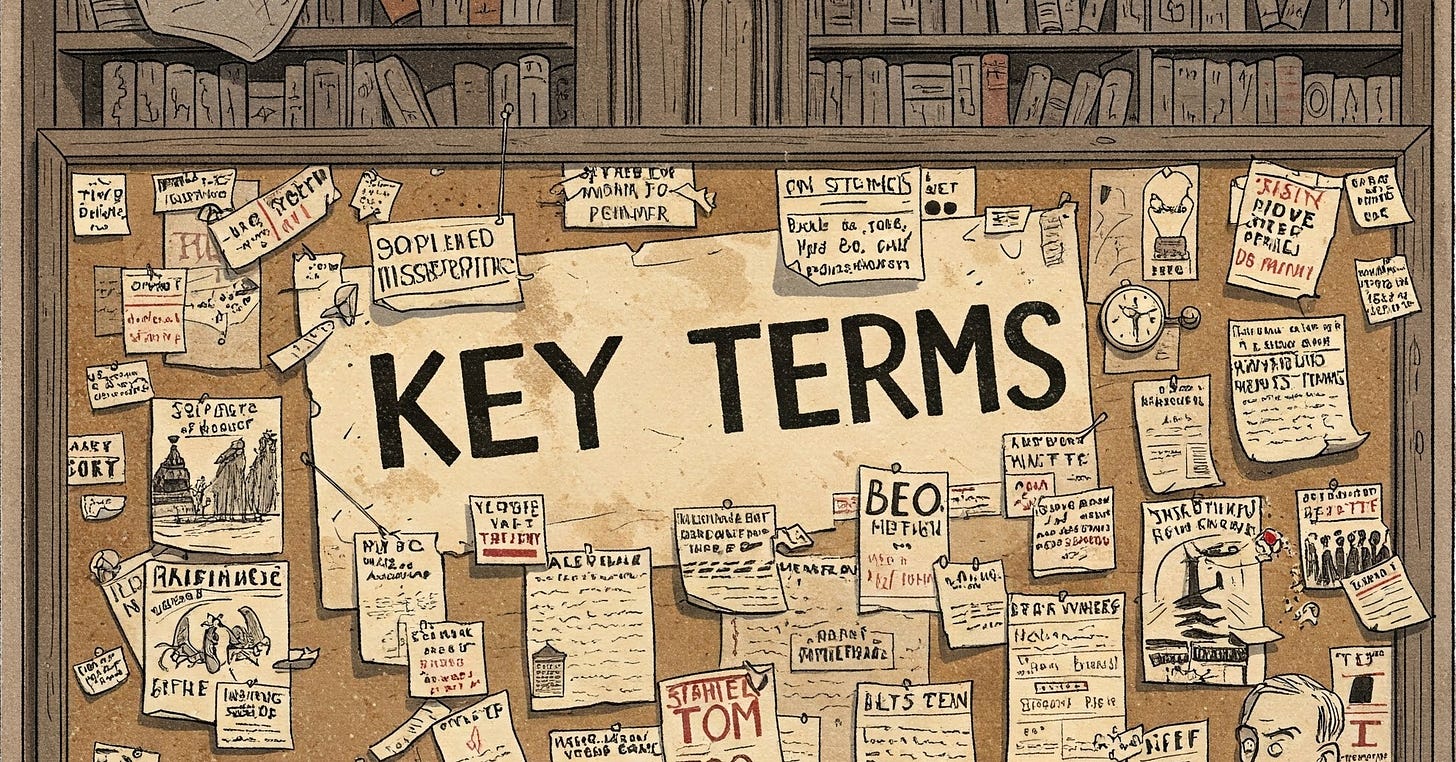
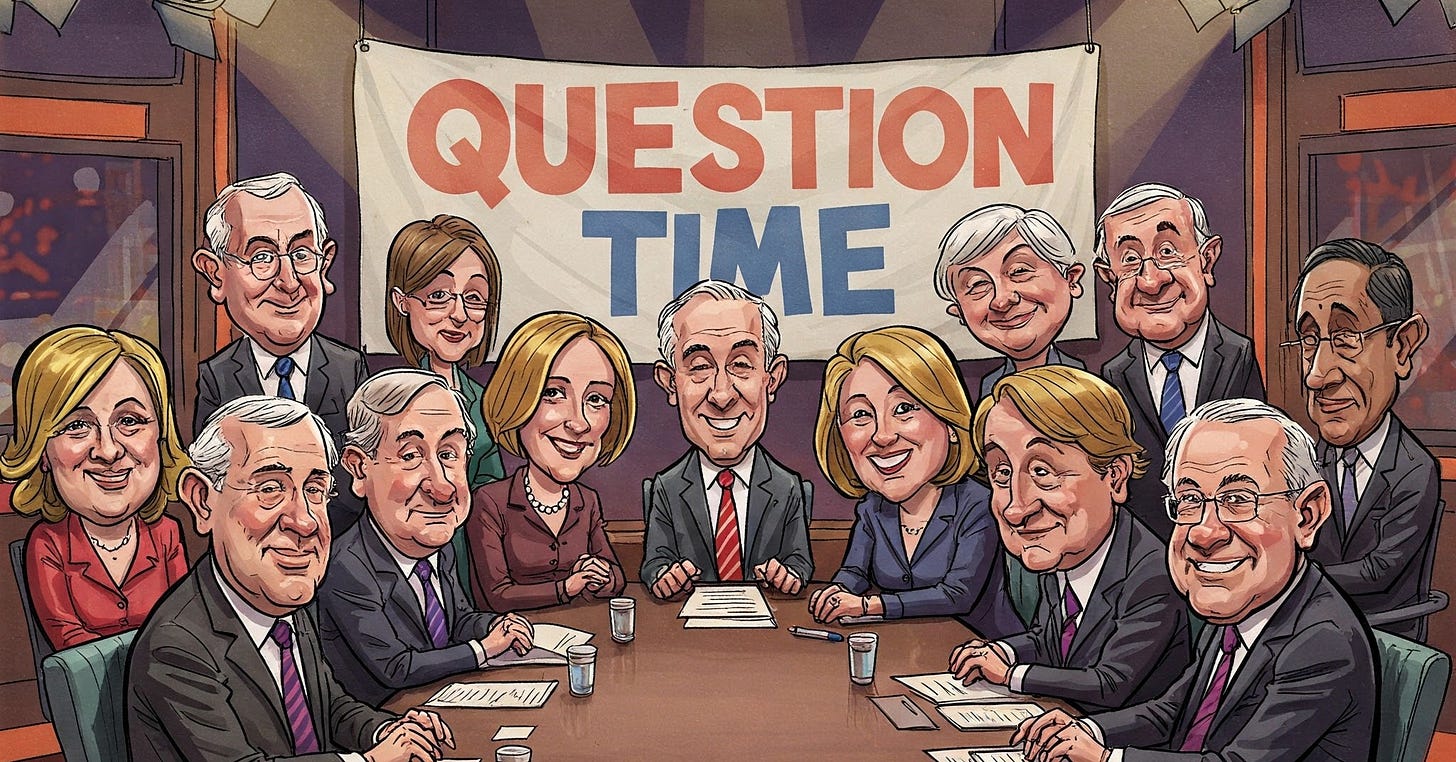
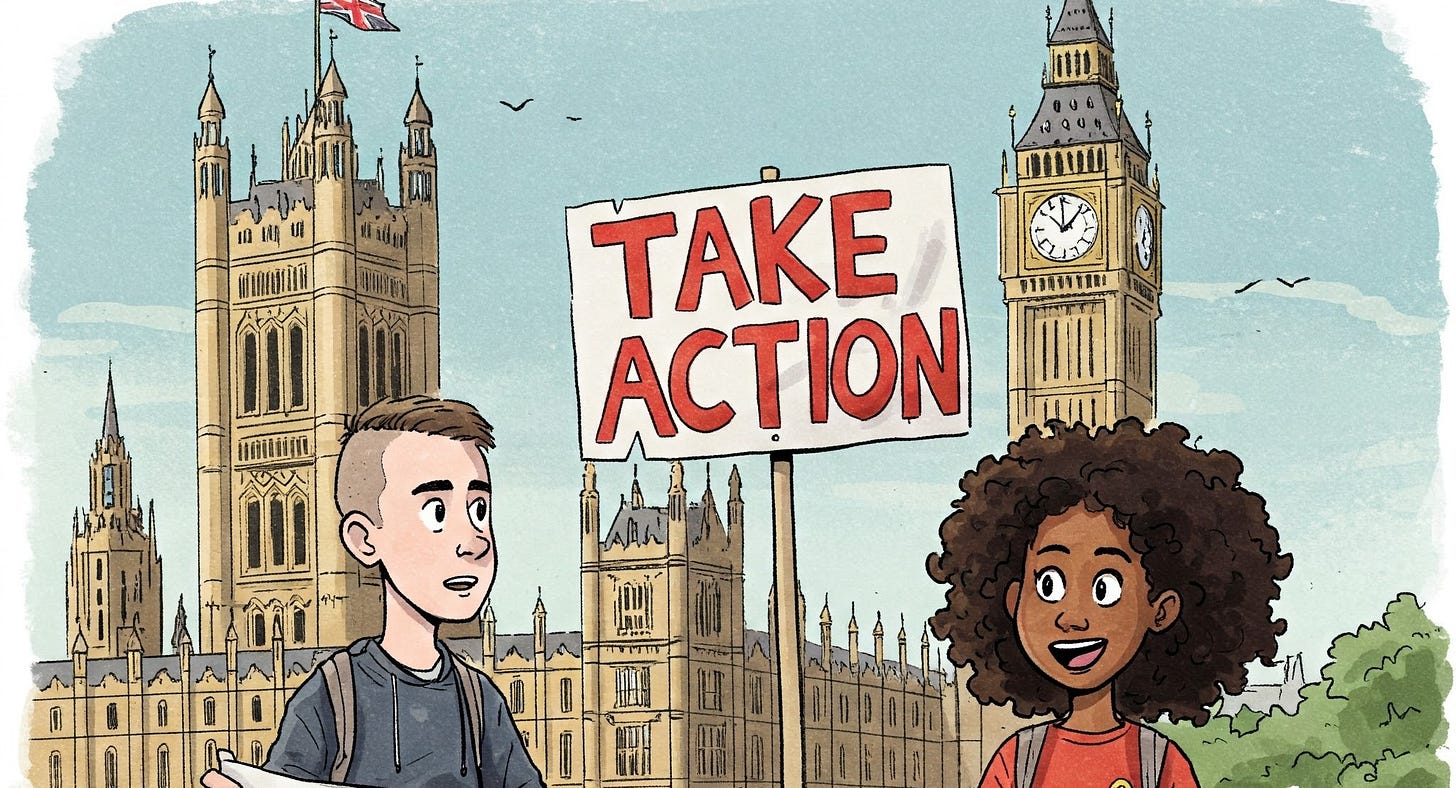

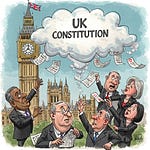




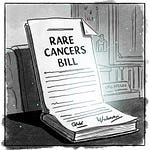

Share this post